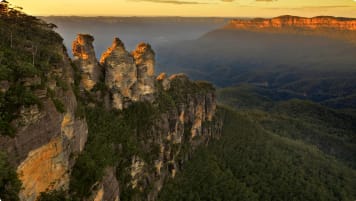Romans settling Britain & Gaul | Summer School course
This course will investigate contemporary accounts of Roman of the path to occupation and then settlement in Britain and Gaul. This class will endeavour to consider and discuss the contribution Rome and the Romans had on the places controlled by these invaders.
Highlights
- 1. Discuss the impact the Romans had these different cultures.
- 2. Discover the role of finance and labour in their quests to dominate
- 3. Learn about how success for Roman peace was achieved.
- 4. Consider the eventual collapse of Rome and the legacy beyond the aqueducts.
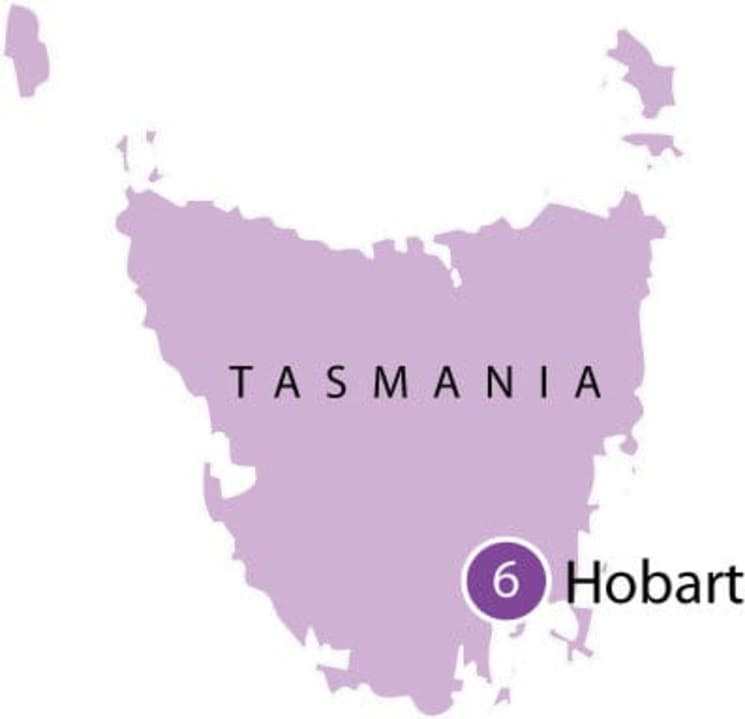
Romans settling Britain and Gaul summer school course
This Odyssey Traveller Australia summer school course about the Romans settling Britain and Gaul (France) runs for five days with three or four sessions per day. The day will start at 9:00am and finish at 3:00pm and late afternoons will be reserved for free time and further text exploration.
This programme will offer you a deep and intimate understanding of a unique period in history, when one of the greatest empires in history settled the regions we know today as Britain and France, as well as other parts of Western Europe. We will learn about the battles fought, the Roman army, the technology introduced, the political process and the way this period has shaped our lives and the world as we know it today.
We begin with a general introduction to the Roman Empire where participating students can get a better sense of this period of history and the dynamics of Ancient Rome. We will then look at the bloody invasions of Britain and Gaul led by Caesar and the kind of environment that Britons lived in during Roman occupation. Over our week together we will get sense of the importance of religion, and the issues it caused, what life was like for women, the complex politics of the time and the challenges different emperors faced in running these areas.
Questions we consider in the classroom
How did the Romans have such power? This classroom program considers and discusses the Roman occupation between the 1st century BC and the 4th century AD. To both Britain and Gaul, the Romans brought roads, bridges, education, and cities. Perhaps above all, they brought Pax Romana or Peace of Rome. It was the resulting freedom from pirates, roving bandits, and other invaders which allowed these areas to grow prosperous. During their occupation they built magnificent villas, aqueducts, amphitheatres, theatres, temples, and whole cities. The remains of these structures are visible today, 2,000 years later. We engage with this period and ask what impact the Romans have left on these areas and how things might be different if this period of history had been different.
Summer School classes for mature and senior travellers
Odyssey offers a collection of week-long learning programs offered each January in Hobart, Tasmania. Courses are refreshed for each year’s programs. Classes are limited to 15 people.
Over the last twenty-five years, Odyssey’s small group Summer School Program has given countless travellers an unforgettable educational and travel experience. Each summer, we prepare and offer fun and challenging special interest courses and programs designed to give travellers the options and opportunity to learn about history, religion, Australian culture, and the arts, among many other topics. These courses are designed in such a way that enthusiasts can deepen their knowledge of a particular topic or be initiated into new understandings on a subject.
These programs offered are tailor-made for mature-aged and senior travellers who are eager to explore in-depth a particular topic. Summer school learning programs for mature and senior travellers who are and remain curious about the world. Read more about our philosophy of the Odyssey Summer Schools.
Gallery

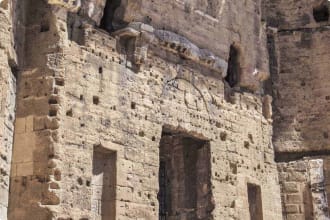
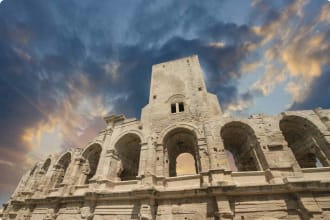
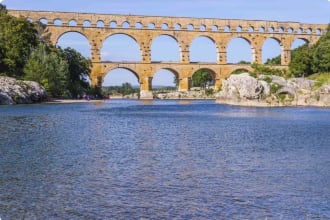
Itinerary
Day 1: Hobart
Accommodation: Mövenpick Hotel Hobart or similar
The Summer school program begins with a welcome reception and dinner.
Day 2: Hobart
Accommodation: Mövenpick Hotel Hobart or similar
We begin our study with a general introduction to the Roman Empire and its early period. We look at just why the Romans feared their northern neighbours and at the early stages of the conquest before moving on to a look at Gaul before Caesar.
Day 3: Hobart
Accommodation: Mövenpick Hotel Hobart or similar
Today we concentrate on Caesar’s bloody conquest of Gaul in which, it has been estimated, over a million Gauls lost their lives and an unknown number were sold into slavery.
In the afternoon we explore what it was like to live in Gaul after the conquest.
Day 4: Hobart
Accommodation: Mövenpick Hotel Hobart or similar
For the Romans, Britain was a mysterious and distant land before Julius Caesar landed there for the first time in 55 BC. This morning, we look at Britain before the Romans and at the invasions led by Caesar in 55 and 54 BC.
This afternoon, we move on almost 100 years to the next Roman invasion, under the Emperor Claudius. We’ll look at the British response and particularly the resistance of Caratacus and the rebellion of Boudicca.
What can we learn from the writings of Roman Historian Tacitus?
Day 5: Hobart
Accommodation: Mövenpick Hotel Hobart or similar
What was life like for the majority of Britons during 400 years of Roman occupation? Today, we look at a number of Roman towns, particularly Silchester, Colchester and Bath, before moving north to Hadrian’s Wall and the extraordinary findings at Vindolanda.
Day 6: Hobart
Accommodation: Mövenpick Hotel Hobart or similar
Today, we focus again on life in the provinces for both the soldiers and the civilians. We look particularly at the role of religion, the role of women and at life in the villas of the 4th century.
Finally, we look at the last stages of life in Roman Britain and at the withdrawal of the legions.
Tonight, we enjoy a farewell dinner…unfortunately (or perhaps fortunately) not Roman style. No pheasant’s tongues or dormice pies for us.
Day 7: Hobart
The tour will end after breakfast.
Includes / Excludes
What’s included in our Tour
- Services of a study leader and lecturers.
- Complimentary wifi.
- Six breakfasts and two dinners.
- Six nights in full en suite accommodation
- Lectures and handouts as indicated
What’s not included in our Tour
- Comprehensive travel insurance.
- Costs of a personal nature.
Participants must be able to carry their own luggage, climb and descend stairs, moderate walking on uneven surfaces between 3 - 5 kilometers per day. Suitable for most fitness levels
Book now
Make it a private tour
Easing your journey
Crossing international borders with restrictions
The list of requirements to travel internationally has changed and will continue to change for several years. Odyssey is here to assist you in managing your way through these requirements:
For more information see our Crossing international borders with restrictions page.
Book With Confidence
If less than 30 days before your tour starts you are unable to travel as a result of Government travel restrictions, Odyssey Traveller will assist you with a date change, provide you with a credit or process a refund for your booking less any non-recoverable costs.
See Terms and conditions for details.
Peace of Mind Travel
The safety of our travellers, tour leader, local guide and support staff has always been our top priority and with the new guidelines for public health and safety for keeping safe for destinations around the world, we’ve developed our plan to give you peace of mind when travelling with us.
See Peace of Mind Travel for details.
Reviews
It all worked out very well - as usual!
Participant 2018
Morning teas and lunches were superb.
Participant 2018
I thoroughly enjoyed the whole program
Participant 2018
Very knowledgeable with a good sense of humour. Well prepared.
Participant 2018
Reading List Download PDF
Roman Britain: A New History
Guy De La Bedoyere
This lively, authoritative account of a crucial period in Britain's history has been revised and updated to incorporate the very latest findings and research. Guy de la Bedoyere the popular face of Romano-British archaeological studies puts the Roman conquest and occupation within the larger context of Romano-British society and how it functioned. With nearly 300 illustrations and dramatic aerial views of Roman sites, and brimming with the very latest research and discoveries, Roman Britain will delight and inform all those with an interest in this seminal epoch of British history.
Pax Romana
Adrian Goldsworthy
The Pax Romana is famous for having provided a remarkable period of peace and stability, rarely seen before or since. Yet the Romans were first and foremost conquerors, imperialists who took by force a vast empire stretching from the Euphrates in the east to the Atlantic coast in the west. Their peace meant Roman victory and was brought about by strength and dominance rather than co-existence with neighbours. The Romans were aggressive and ruthless, and during the creation of their empire millions died or were enslaved.But the Pax Romana was real, not merely the boast of emperors, and some of the regions in the Empire have never again lived for so many generations free from major wars. So what exactly was the Pax Romana and what did it mean for the people who found themselves brought under Roman rule?Acclaimed historian Adrian Goldsworthy tells the story of the creation of the Empire, revealing how and why the Romans came to control so much of the world and asking whether the favourable image of the Roman peace is a true one. He chronicles the many rebellions by the conquered, and describes why these broke out and why most failed. At the same time, he explains that hostility was only one reaction to the arrival of Rome, and from the start there was alliance, collaboration and even enthusiasm for joining the invaders, all of which increased as resistance movements faded away.A ground-breaking and comprehensive history of the Roman Peace, Pax Romana takes the reader on a journey from the bloody conquests of an aggressive Republic through the age of Caesar and Augustus to the golden age of peace and prosperity under diligent emperors like Marcus Aurelius, offering a balanced and nuanced reappraisal of life in the Roman Empire.
Caesar's Footprints: A Cultural Excursion to Ancient France: Journeys Through Roman Gaul
Bijan Omrani
Julius Caesar's conquests in Gaul in the 50s BC were bloody, but the cultural revolution they brought in their wake forever transformed the ancient Celtic culture of that country. After Caesar, the Gauls exchanged their tribal quarrels for Roman values and acquired the paraphernalia of civilized urban life. The Romans also left behind a legacy of language, literature, law, government, religion, architecture, and industry.
Each chapter of Caesar's Footprints is dedicated to a specific journey of exploration through Roman Gaul. From the amphitheatres of Arles and Nîmes to the battlefield of Châlons (where Flavius Aetius defeated Attila the Hun) Bijan Omani―an exciting and authoritative new voice in Roman history―explores archaeological sites, artifacts, and landscapes to reveal how the imprint of Roman culture shaped Celtic France―and thereby helped to create modern Europe.
Roman Conquests: Gaul
Michael Sage
Ever since their sack of Rome in the early fourth century BC, the various tribes of Gauls to the north were among the Roman Republic's most feared and respected foes. This book describes how Roman armies eventually carried war into their enemies' homelands and brought them into their expanding empire.Michael M Sage relates the establishment of Rome's first footholds in Gallic territory, before moving onto Julius Caesar's dazzling seizure of all Gaul in the space of a few years. Caesar army repeatedly defeated much larger armies drawn from a fierce warrior culture. These, the most famous of all Roman campaigns of conquest, are described and analysed in great detail, as are the events of Vercingetorix's great rebellion which almost succeeded in throwing off Roman rule before it could be consolidated. Caesar's epic siege of Alesia provides a dramatic climax.
Under Another Sky: Journeys in Roman Britain
Charlotte Higgins
Shortlisted for the 2013 Samuel Johnson Prize, the Thwaites Wainwright Prize and the 2014 Dolman Travel Book Award This is a book about the encounter with Roman Britain: about what the idea of `Roman Britain' has meant to those who came after Britain's 400-year stint as province of Rome - from the medieval mythographer-historian Geoffrey of Monmouth to Edward Elgar and W.H. Auden. What does Roman Britain mean to us now? How were its physical remains rediscovered and made sense of? How has it been reimagined, in story and song and verse? Charlotte Higgins has traced these tales by setting out to discover the remains of Roman Britain for herself, sometimes on foot, sometimes in a splendid, though not particularly reliable, VW camper van. Via accounts of some of Britain's most intriguing, and often unjustly overlooked ancient monuments, Under Another Sky invites us to see the British landscape, and British history, in an entirely fresh way: as indelibly marked by how the Romans first imagined, and wrote, these strange and exotic islands, perched on the edge of the known world, into existence.
The Wall : Rome's Greatest Frontier
Alistair Moffat
Hadrian's Wall is the largest, most spectacular and one of the most enigmatic historical monument in Britain. Nothing else approaches its vast scale: a land wall running 73 miles from east to west and a sea wall stretching at least 26 miles down the Cumbrian coast. Many of its forts are as large as Britain's most formidable medieval castles, and the wide ditch dug to the south of the Wall, the vallum, is larger than any surviving prehistoric earthwork.Built in a ten-year period by more than 30,000 soldiers and labourers at the behest of an extraordinary emperor, the Wall consisted of more than 24 million stones, giving it a mass greater than all the Egyptian pyramids put together. At least a million people visit Hadrian's Wall each year and it has been designated a World Heritage Site. In this new book, based on literary and historical sources as well as the latest archaeological research, Alistair Moffat considers who built the Wall, how it was built, why it was built and how it affected the native peoples who lived in its mighty shadow. The result is a unique and fascinating insight into one of the Wonders of the Ancient World.
Romans settling Britain & Gaul | Summer School course

